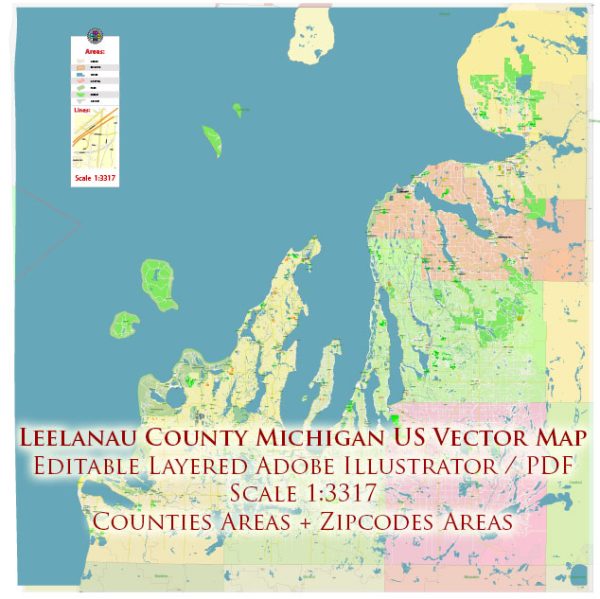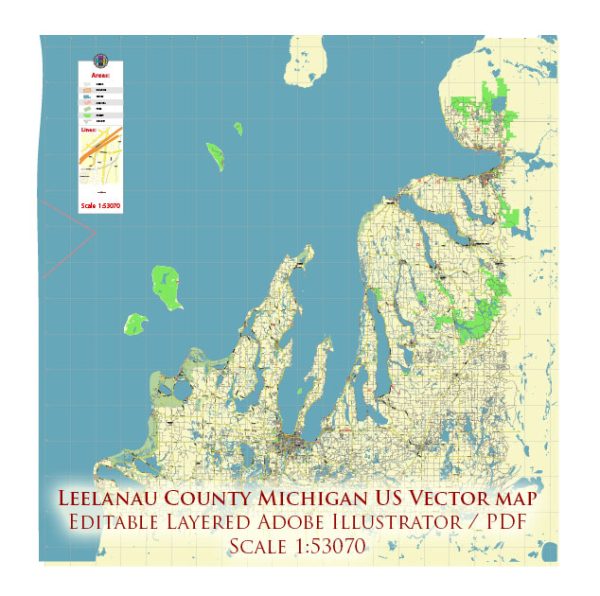Leelanau County, located in the state of Michigan, is known for its natural beauty, including miles of shoreline along Lake Michigan and inland lakes, rolling hills, and picturesque landscapes. Unlike urban areas, Leelanau County is predominantly rural and has a rich history rooted in agriculture, tourism, and natural resources.
Native American Influence: Before European settlement, the area was inhabited by Native American communities, primarily the Ottawa and Chippewa tribes. These indigenous peoples relied on the abundant natural resources for sustenance and trade.
European Settlement: European settlers, mainly of European descent, began arriving in the early 19th century. Logging and agriculture were the primary economic activities, as the dense forests provided valuable timber, and the fertile land was suitable for farming.
Agriculture and Industry: Agriculture played a crucial role in the county’s development. The fertile soil supported the cultivation of cherries, apples, and other crops. The area became known for its orchards and vineyards, contributing to the growth of the agricultural sector.
Tourism: The late 19th and early 20th centuries saw the emergence of tourism as a significant economic driver. Visitors were drawn to the county’s scenic beauty, pristine lakes, and outdoor recreational opportunities. Resorts, hotels, and cottages were established to accommodate tourists, marking the beginning of a tourism industry that continues to thrive today.
Small Towns and Villages: Leelanau County is characterized by small towns and villages, such as Leland, Suttons Bay, and Northport. These communities often have well-preserved historic downtown areas with charming shops, restaurants, and architecture that reflects the county’s heritage.
Preservation and Conservation: In recent decades, there has been a concerted effort to preserve the natural beauty and rural character of Leelanau County. Environmental conservation, sustainable agriculture practices, and responsible development have been emphasized to maintain the area’s unique charm and appeal.
Challenges and Growth: While the county has experienced growth, it has been cautious about maintaining its rural character. Balancing economic development with environmental preservation has been a continuous challenge. The community has been active in planning and zoning to ensure that growth aligns with the county’s values.
Overall, Leelanau County’s history of urban development is unique in that it contrasts with the typical urbanization found in more densely populated areas. Instead, the county has focused on preserving its natural assets and promoting sustainable development while embracing its rich agricultural and tourist heritage.



 Author: Kirill Shrayber, Ph.D. FRGS
Author: Kirill Shrayber, Ph.D. FRGS